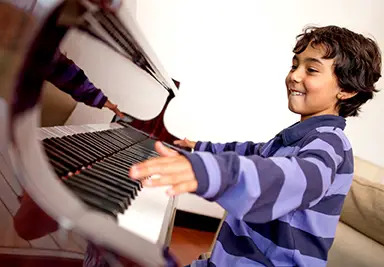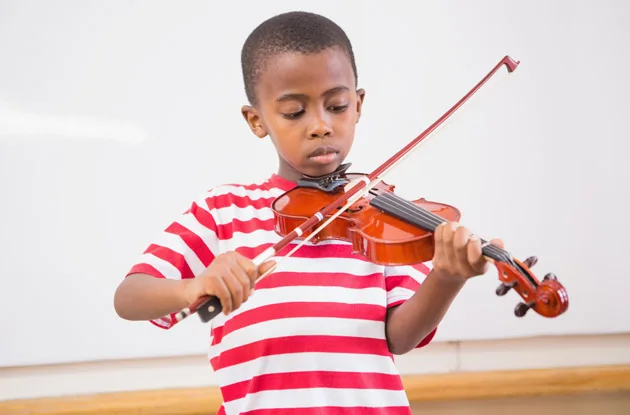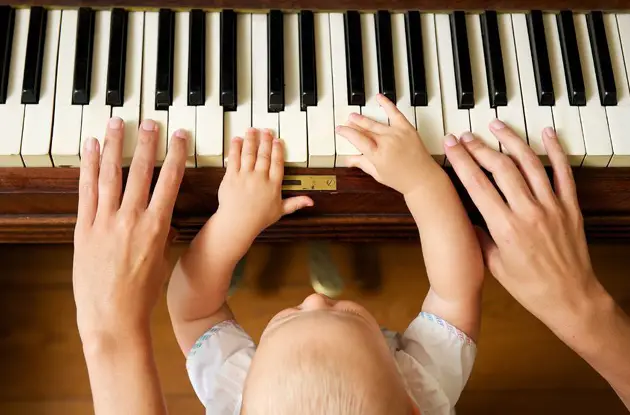If you thought piano lessons were not an option for your child with special needs, think again. Kristyn Rushton, a residential program manager at Life’s WORC shares what to look for in a piano teacher and details about a program that was designed specifically for children with special needs.

If music is one of your child’s interests but you are doubtful about getting him instrument lessons, perhaps you should reconsider. If your child “stops to listen to or notices different sounds or gravitates to the radio, then it’s something I would definitely pursue,” says Kristyn Rushton, a residential program manager at Long Island-based Life’s WORC who began teaching children with autism to play piano in 2008. “I’ve seen some kids really progress and see skills increasing and changing, behaviors decreasing, and more social behaviors coming out when it clicks.”
Rushton recently helped Life’s WORC establish its piano program using Visual Music Concepts, an ABA-based visual and auditory approach to learning music that was developed by Maria LaMon, who has a master’s in special education and is president of The Music Academy for Special Learners in Ronkonkoma. The multi-sensory program uses flash cards, games, and other tools children on the spectrum are familiar with to learn theory, note names, and songs. The program has been shown to increase attention, self-esteem, language, and fine motor skills, according to Rushton.
While the age at which children should start piano lessons varies from child to child, Rushton advises that children should be able to take directives, sit for an extended period of time, and know the letters of the alphabet because “we build off that to teach them notes on the piano. It’s helpful to have that skill when they begin, although not necessary,” Rushton says. “Everything else is taught.”
When looking for a piano teacher for your child, Rushton advises to find someone who has patience, who your child can trust and is comfortable with, who has knowledge of music and is creative in lessons, and who has experience in teaching children with autism or developmental disabilities. Ultimately: “someone who understands, embraces, and is sensitive to [your child’s needs] to help them move forward in lessons,” Rushton says.
Lessons at Life’s WORC generally take place once a week, which is an appropriate amount of time if the family prompts the child to practice at home, otherwise the piano teacher has to reteach the child what was taught the previous week. Children should practice every day, Rushton suggests, but it doesn’t have to be an hour each day. Practicing should be fun; make it a positive social thing and have Mom, Dad, or siblings involved. “The most important thing is to not make practicing tedious,” Rushton says. It can be anything from playing the piano to a matching game, or maybe going over flash cards. “It’s really based on your child, their specific needs, and helping them develop as an individual,” she says.
Remember to manage your expectations. “Some parents expect their children to become Beethoven tomorrow. We have to understand that the child might get different skills out of this,” Rushton says. “They may play ‘Mary Had a Little Lamb’ and never progress to a more advanced song, but they’re speaking more, their attention and fine motor skills have improved. So we try to explain to parents that you get what you put in, and your expectations should be realistic in what your child can accomplish.”



















